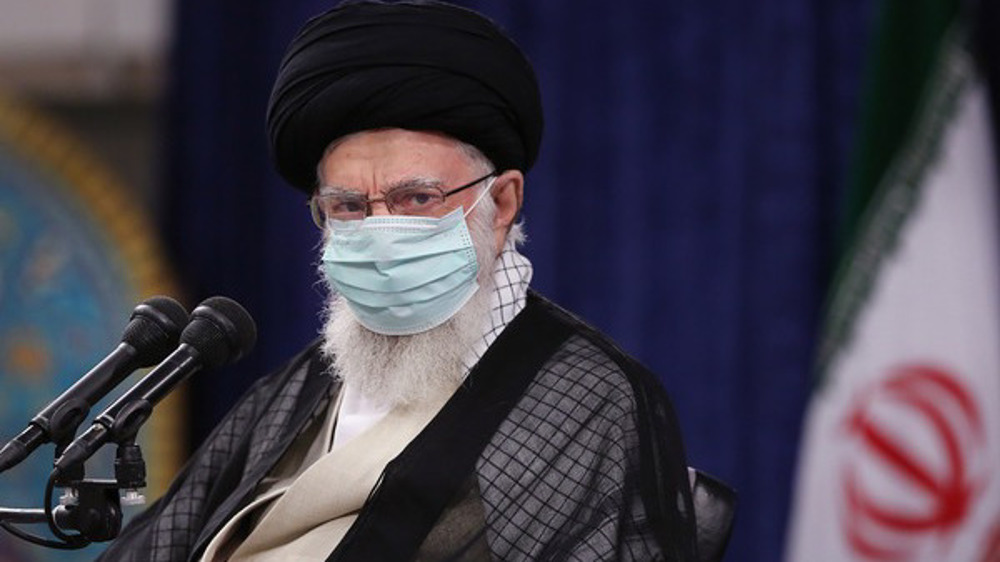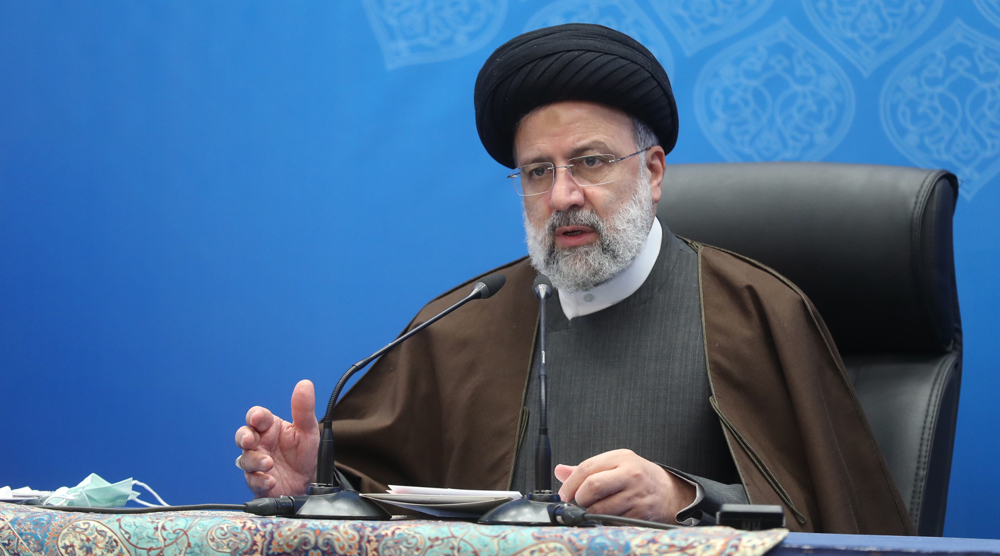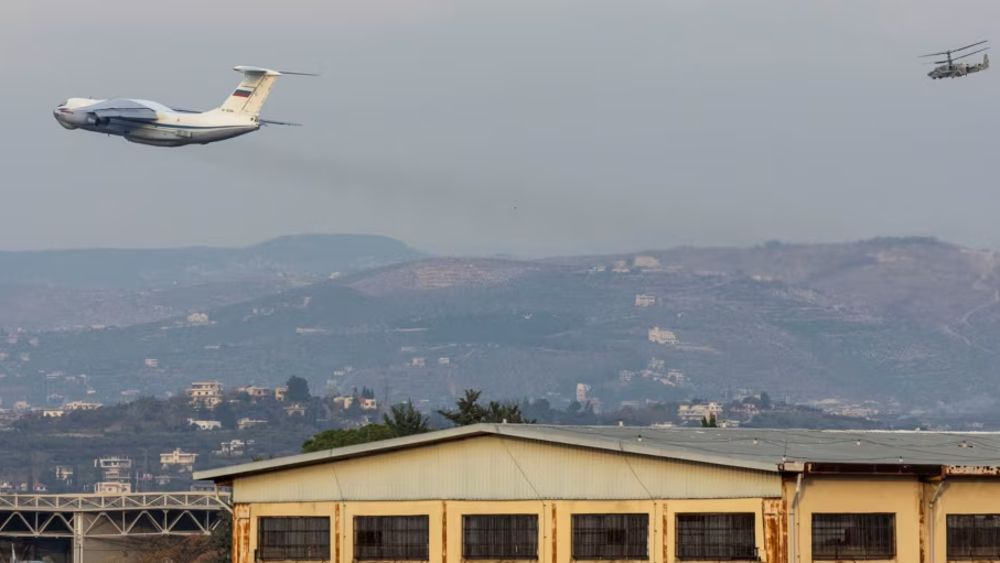President Raeisi: Normalization of relations will not bring security to Zionist regime
Iran’s President Ebrahim Raeisi says normalization of relations with a number of regional Arab countries will not bring security to the Zionist regime of Israel.
Raeisi made the remarks in a joint presser with the visiting Iraqi Prime Minister Mustafa al-Kadhimi in Tehran on Sunday.
“During this meeting, we discussed trade and political and economic relations [between the two countries], and decided to boost economic ties. We discussed the rail connection between Shalamcheh [in Iran] and [Iraq’s] Basra [port], which can play a great role in facilitating trade between the two countries. We also discussed facilitation of monetary and banking relations between Iran and Iraq,” he said.
Reflecting on the efforts made by the Zionist regime’s official during past years to normalize relations with some Arab states in the region, Iran’s chief executive said, “The efforts made by the Zionist regime to normalize relations with regional countries will by no means bring security to this regime.
“We and Iraq believe that peace and tranquility in the region depends on all regional officials doing their parts, and normalization [of relations] with the [Zionist] regime and the presence of foreigners in the region will solve none of the regional people’s problems,” Raeisi said.
Highlighting the importance of relations between Iran and Iraq and the role played by the two countries in regional developments, Raeisi said, “We stood by people of Iraq when the country was going through dire straits and will continue to stick together. This friendship and relations will never go cold and will further develop on a daily basis. There is no doubt that the visit by Mr. Kadhimi and his accompanying delegation can be a turning point in development of relations between the two countries.
He said that during his meeting with Kadhimi they discussed the existing relations among regional countries, adding, “We believe that dialog among regional countries can solve regional problems, [but] the presence of foreigners in the region only creates more problems and does not help solve those problems.”
Back in 2020, the United Arab Emirates and Bahrain signed United States-brokered agreements with Israel to normalize their ties with the regime. Some other regional states, namely Sudan and Morocco, followed suit soon afterward.
Spearheaded by the UAE, the move has sparked widespread condemnations from the Palestinians as well as nations and human rights advocates across the globe, especially within the Muslim world.
Other regional countries have also been fraternizing with Israel, including Saudi Arabia, which received a visit by the regime’s former prime minister Benjamin Netanyahu in November 2020.
Earlier this month, Leader of the Islamic Revolution Ayatollah Seyyed Ali Khamenei said the Arab governments that chose to normalize relations with Israel against the will of their people will end up being exploited by the occupying regime.
“The Arab and non-Arab governments that moved toward normalizing their relations with the Zionist regime, against the will of their nations and for the will of the United States, must know that these interactions will bring them nothing but exploitation at the hands of the Zionist regime,” the Leader stated.
Ceasefire, lifting blockade can solve Yemen conflict: Raeisi
Elsewhere in the presser, the Iranian president said the two sides have underlined the need for establishing a durable ceasefire in Yemen, lifting the economic blockade, and facilitating intra-Yemeni talks as the solutions to the existing problem in the impoverished country.
“Undoubtedly, we consider the continuation of this [Saudi-led] war fruitless and believe that this war has no outcome but the suffering of the people,” Raeisi said, emphasizing that ceasefire can be a “step towards resolving issues in Yemen.”
Saudi Arabia launched the devastating war on Yemen in March 2015 in collaboration with its Arab allies and with arms and logistics support from the US and other Western states.
The objective was to reinstall the Riyadh-friendly regime of Abd Rabbuh Mansur Hadi and crush the Ansarullah resistance movement, which has been running state affairs in the absence of a functional government in Yemen.
While the Saudi-led coalition has failed to meet any of its objectives, the war has killed hundreds of thousands of Yemenis and spawned the world’s worst humanitarian crisis.
Iran, Iraq agree to boost trade ties: Kadhimi
Kadhimi, for his part, said that during his talks with Iranian officials, the two sides discussed bilateral historical, cultural, and religious relations.
The Iraqi premier added that Baghdad attaches great importance to its relations with Tehran on the basis of common interests.
He noted that Iran and Iraq agreed to make further efforts to serve their nations’ interests and boost trade ties.
Kadhimi said Iran and Iraq also agreed to set a timetable to facilitate the huge annual Arbaeen procession.
He added that while Iranian pilgrims have already been able to receive visas at Iraqi airports, it is now possible for a specific number of Arbaeen pilgrims to obtain visas through border crossings.
The Iraqi prime minister said, “We also discussed major regional challenges and agreed to make a joint effort to help establish stability and calm in the region. We also talked about fateful issues facing the regional nations. We decided to support the Yemen ceasefire and agreed to support dialogue in Yemen in order to put an end to a war that has brought a lot of suffering to Yemeni people.”
Yemeni FM: Israel’s sponsors accountable for ongoing aggression on Sana’a
Eight Palestinians killed as Israel attacks Gaza school, hospitals
VIDEO | Rome, Milan host new protests in solidarity with Palestinians
Dec. 21: ‘Axis of Resistance’ operations against Israeli occupation
Spain jurists demand ties with Israel ties be cut
VIDEO | Press TV's news headlines
VIDEO | Iran honors top Science Olympiad medalists
VIDEO | Austrians arrested at Gaza protest in Vienna











 This makes it easy to access the Press TV website
This makes it easy to access the Press TV website